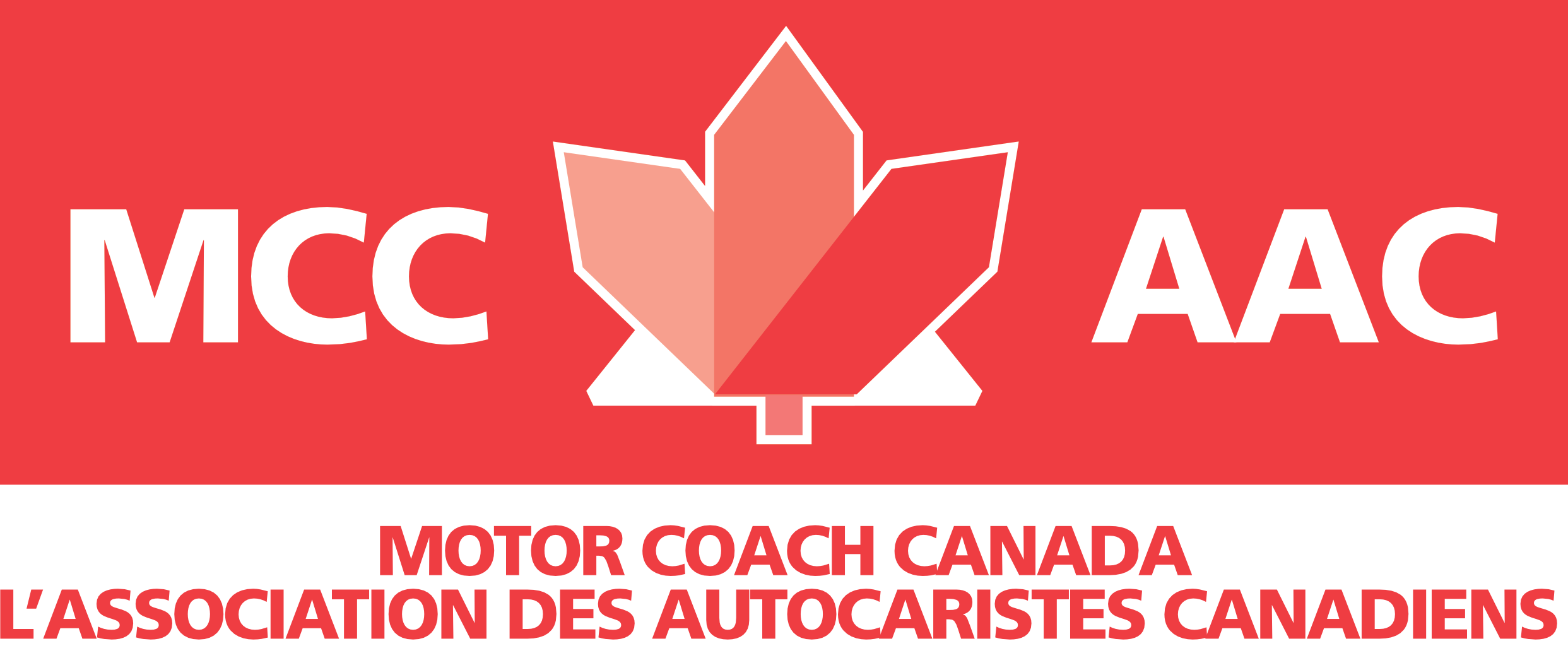Why & When was Motor Coach Canada (MCC) Created?
By the 1980’s many of the issues facing the members of regional associations were national. The Western Canada Motor Coach Association (WCMCA), Ontario Motor Coach Association (OMCA), and the Quebec association (APAQ), had representation on the Board of the Canadian Bus Association (CBA). The regional associations advocated that the CBA should be involved in charter and tour issues not just the scheduled carrier segment as it did. The CBA chose not to change. Without national representation for charter and tour carriers and to represent all its members, OMCA had to be involved in national issues and in fact was being asked by the federal government to get involved. But OMCA did not get formal recognition by the federal government because of a federal government policy of them working with ‘national’ entities only.
In 1995 OMCA members voted unanimously to form Motor Coach Canada to represent at the national level all segments of the bus and coach tour industry in Canada. The intent of OMCA was to create an umbrella organization made up of the three regional/provincial associations and the CBA. The Western Canada Motor Coach Association supported this concept but the Quebec association and CBA refused to accept MCC as an umbrella organization. A short time later the western association went out of business. This left OMCA as the only entity to fund MCC.
While numerous attempts were made by MCC to involve the other associations, all failed. Because of this lack of support from the other associations MCC went from its intended ‘umbrella’ role to a full association. It has coach operator, tour operator and supplier members (hotels, attractions, DMO’s, manufacturers, services, etc.) Because MCC filled a demand, represented all segments of the coach industry and worked on issues and services related to the overall industry, it grew and became recognized by governments, media, and tourism/travel stakeholders. It is being constantly invited by federal and provincial governments to represent the industry. For example, it was the only bus association to be part of the government’s committee that rewrote the hours of service rules over an eight year period.
MCC has established working relationships with other national and international associations to achieve more for our members and the industry in general. Examples: TIAC, CTC, ABA, NTA, See America, ACTA, CITC. It has recently created a formal alliance with the ABA. With WCMCA going out of business in western Canada it left a void for regional representation. The BCTA opened it’s membership to coach operators and many joined.
Current Status and Relationship
MCC is a separate legal entity with a Board of Directors. Ten Directors are elected by the members and has one tour operator and one coach operator member from each of five regions across Canada. The OMCA appoints 6 representatives and the BCTA appoints one member of the Board. The Board approves a business plan, directs staff and recommends policy. The OMCA funded MCC to start it up and continues to underwrite some of its expenses. MCC’s head office is in Toronto and has satellite offices in Calgary and Fredericton. The long term plan for MCC is to have an office in Ottawa. It contracts administrative services from OMCA as well as other contractors. MCC and OMCA share the same President and with the consent of the two Boards all issues, projects and services identified by members or government are categorized as national or regional. Those national are handled by MCC and those provincial (Ontario) by OMCA. Shared staff allocate their time based on time spent. Non-shared staff and contractors are directly allocated to MCC. Office overheads are allocated accordingly. From a membership perspective members of BCTA and OMCA are members of MCC in addition to the operators that join MCC directly.
